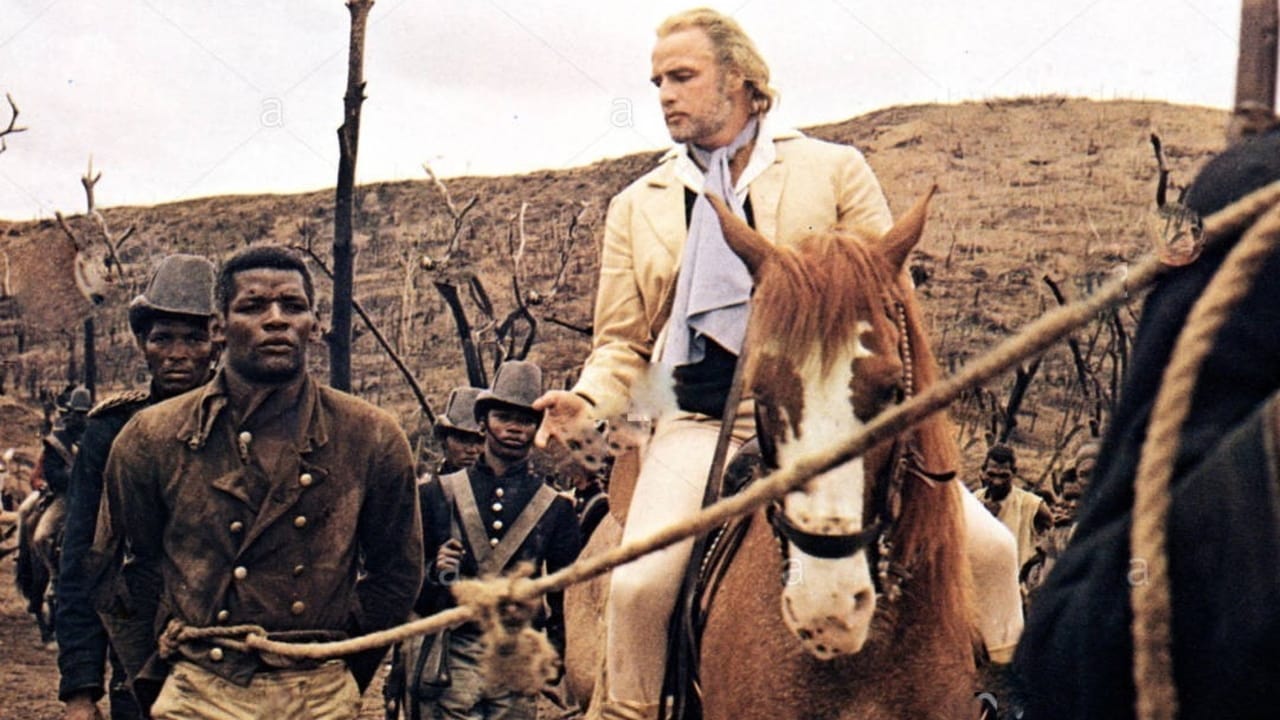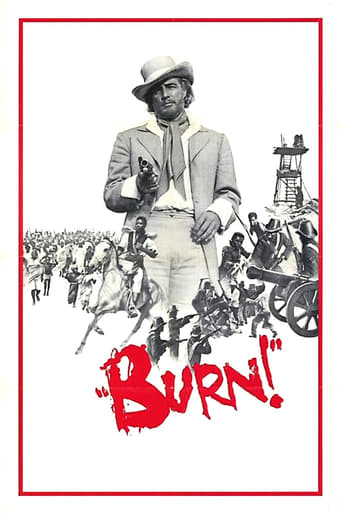

Ennio Morricone's haunting music provides an outstanding background to what is probably Marlon Brando's greatest performance. Of course, there will be those who vote for On The Waterfront, or Apocalypse Now, or The Godfather, but they probably have not seen this film. One of the greatest actors of all time, he is superb here in this role.Brando himself said in his autobiography that he did the best acting he ever did in this film.Director Gillo Pontecorvo (The Battle of Algiers) was also superb, and gave us a classic film showing how colonial powers foment revolution to their own ends, and how their plans often backfire.Evaristo Márquez, who died this year, was an illiterate herdsman before he joined Brando and Pontecorvo. H was magnificent as Jose Delores. Renato Salvatori was also very good as Teddy Sanchez.This review is based upon the 152 minute director's cut.
... View MoreA 19th century British diplomat instigates a revolution on the island of Queimada in the Caribbean between the black slaves and the Portuguese colonials in order to break Portugal's hold on the sugar market. An odd bit of political rabble-rousing and quasi-history from director Gillo Pontecorvo, who also worked on the story but seems far more comfortable gazing at the vistas and landscapes of the region rather than staging a riot. Marlon Brando (grizzled, and with a precarious accent) gives a necessarily unsympathetic performance and has some amazing bits and pieces, yet the picture really only comes to life during the montages, sweeping panoramas as scored by Ennio Morricone (whose work deserves the highest praise). United Artists, afraid of offending the Spanish movie market, changed the nationality of the villains from Spaniards to Portuguese in an eleventh-hour move designed for box-office; it was a misguided decision, particularly since U.A. hardly distributed the picture after the critics' reviews were less than enthusiastic. It has only recently acquired a cult following, mostly due to Morricone's majestic music. ** from ****
... View MoreI recall liking this film as a teenager, although noticing that it was not edited very well. I now find out that there was a 132 min version, that would explain the jumps in the film. Nevertheless it is a great film, beautifully photographed. It looks great in Widescreen, the Fullscreen Key VHS release was missing lots of the photography. Brando never looses his accent throughout the film. I like the narration when he is back in England 10 years later, however I expect that this was done to supplement some of the footage that may have been cut. Hopefully there is a directors cut that can be released in the US. Maybe that cut still has Brando's original dialogue to the scenes that were deleted. *****
... View MoreThis movie, I think one of the best movie about slavery, freedom, imperialism and colonization. Its tels the common history of Latin America through the island Queimada. The movie itself can be a subject of courses, but it is not an agitative the director uses casting very brilliantly. Do not evaluate the movie according to its IMDb point remember some awful Hollywood films can be in top 250. And I guarantee you you learn a lot from the movie like me! There are some hot arguments in the movie such as freedom. In the movie dolares says "freedom is not something to given but you take the freedom", and in the last scene director shows us the face of people of queimada, you see the anger but this anger means "hope of independence" last point watch the movie of the battle of Algiers and this movie together. Believe me although they are about different countries and different events but I feel that those movies are two parts of a common movie.
... View More